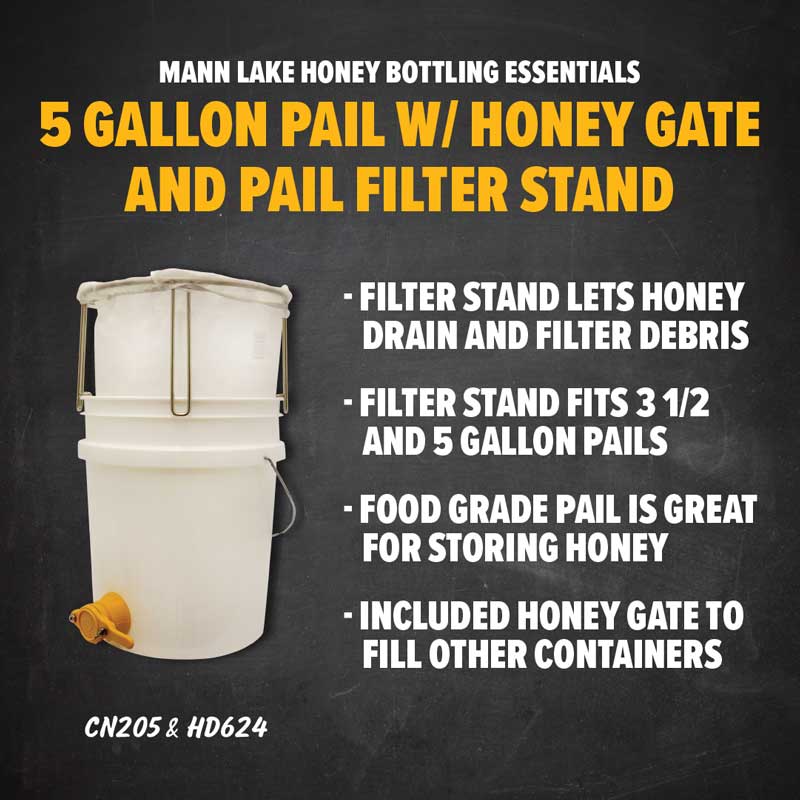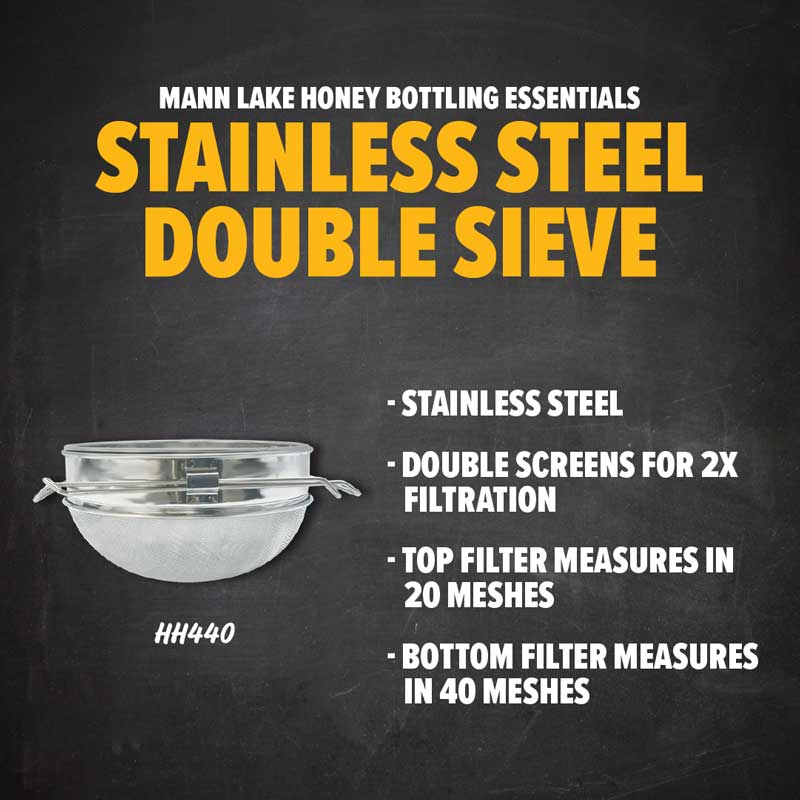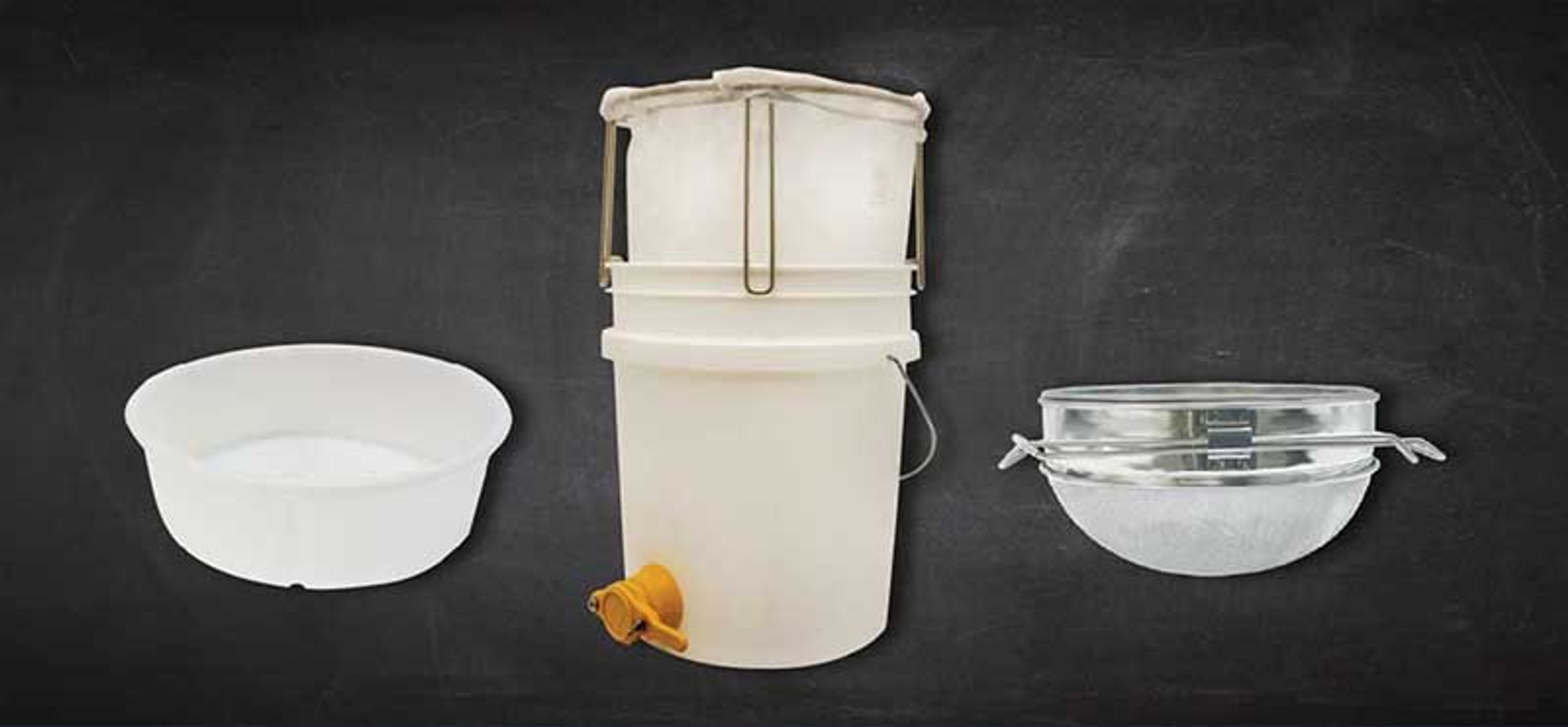Got Honey? Get The Necessary Supplies
As with any harvest, you have to work hard to collect the honey from your beehives at the end of the season. Honey extraction can be a long, messy process, but the reward is more than worth it. You can make your honey harvest even more successful by preparing all the supplies you’ll need and taking extra caution with your bees. Prepare for a harvest with these tips for extracting honey from a beehive.
Tools You'll Need
Before you begin the harvesting process, you need to make sure you have all the necessary supplies on hand. Many of your regular beekeeping essentials will come in handy when you’re working around the hives and handling your hive frames.
Make sure you have your protective clothing—especially your helmet and veil—on hand. You should also use a smoker to keep your bees calm while you approach and work within the hive. A standard hive tool is also useful for prying up your frames. In addition to these tools, you might also want to obtain a honey extractor, an electric uncapping knife, bee-clearing agents, and other extraction tools and accessories.
Once your honey is strained with Stainless Steel Double Sieve, you're ready to bottle. By far the easiest way for the beginner to bottle is to use a 5 Gallon Pailwith a honey gate at the bottom. Using gravity, you can easily fill the containers you wish to sell, give away, or keep. When your honey sales have grown, consider buying a heated bottling tank and an automatic filler.


Raw Honey vs. Regular Honey: The Difference
Anyone can buy a bottle of grocery store honey, but that doesn’t mean you’re getting the true honey experience. Those who settle for regular honey are missing out on a world of unique flavors and characteristics. Every spoonful of raw honey is a sweet tribute to the hive it came from, and no two bottles are the same. What separates the two kinds of honey?
How It's Made
All honey starts at the same source: the harvest from a honey beehive. Beekeepers remove the bee frames from their hives and place them in a honey extractor. The extractor spins the frames, releasing the honey so that it drips down to the bottom of the extractor’s drum. From there, beekeepers filter the honey to remove debris, such as wax or pieces of honeycomb. This is the end of the process for raw honey. However, regular honey then goes through a pasteurization process, which involves heating the honey to a high temperature to destroy the microorganisms within it. Pasteurization also gives honey a clearer, more uniform appearance. However, this process means that regular honey lacks many of the characteristics that make raw honey so special.
Health Benefits
Apart from the pasteurization process, the biggest difference between raw honey and regular honey is the health benefits of each. Honey straight from the hive contains many nutrients and other beneficial elements. Raw honey naturally contains impurities like bits of pollen or propolis. These natural substances contain anti-inflammatory and antibacterial properties. Raw honey is also bursting with enzymes, antioxidants, and vitamins. Regular honey loses these properties when it undergoes the pasteurization process. While this process kills bacteria, it also ends up destroying many of raw honey’s beneficial nutrients. As such, if you enjoy a spoonful of honey to soothe a sore throat, raw honey is the way to go.
Taste
Each bottle of raw honey comes with its own unique color, texture, and flavor. These characteristics are the result of the local pollen that exists within raw honey. Some types of raw honey even hold a flavor that matches the flowers the honey bees foraged from while making that season’s honey. For example, a hive that mainly pollinates blueberry plants will produce honey that holds a subtle blueberry tang. When manufacturers remove the pollen and other natural elements during pasteurization, the honey loses that touch of something special.
Learn About Extracting Honey


